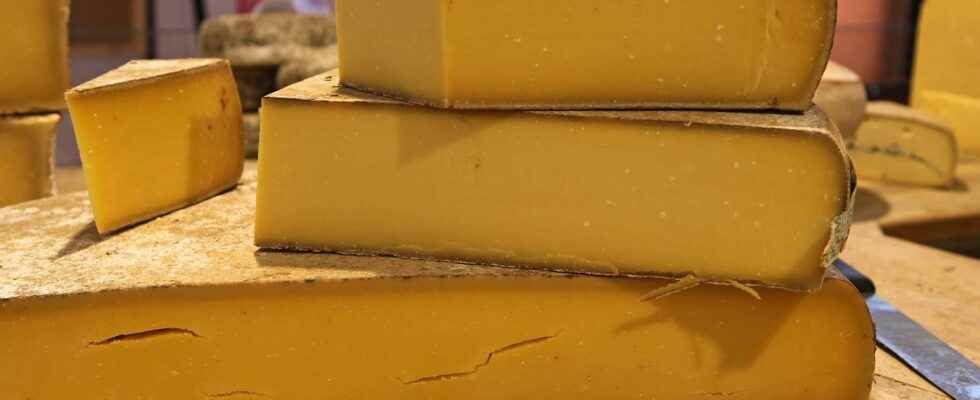Knowing that a cow produces 8,500 liters of milk per year, how many camemberts can you make with this quantity? You will see that cheese is a great way to store milk without taking up space!
You will also be interested
A cheese consists almost exclusively of milk. And sometimes a lot, a lot of milk. Did you know that an Emmental wheel of 40 kg (with the holes!) contains the equivalent of eight times the consumption annual of a French (49 liters per year)? In fact, it all depends on type of cheese. In general, a cooked pressed cheese, such as Beaufort, Comté or Gruyère, will require more milk than a soft cheese, because it contains less water (which is also why ‘they are richer in calcium).
According to the site dairy-products.com for example:
- 2 liters of milk for a 250 g Camembert de Normandie;
- 3.5 liters of milk for a 350 g pont-l’Evêque;
- 25 liters of milk for a 3.5 kg Brie de Meaux;
- 400 liters of milk for a 40 kg cheese wheel of Comté, Beaufort, Cantal or Gruyère;
- 20 to 30 liters of milk for an Auvergne blue of 2 to 3 kg;
- 13 to 14 liters of milk for a 1.7 kg Saint-Nectaire;
- 7 liters of milk for a 750 g maroilles.
For goat cheeses (crottin de chavignol, bûche, chabichou du Poitou, tomme …), there are 5 liters of milk to make 1 kg of fresh cheese and 7 liters for mature cheese. Roquefort AOP, made with sheep’s milk, requires 12 liters of raw milk for a 2.8 kg cheese.
Cheese, an economical way to store milk in the mountains
These differences can also be explained by historical reasons: in the mountains, we used to produce large wheels which were kept for a long time and refined over time, in order to benefit from the cheese.winter, when the animals give less milk. It was thus a way of storing milk when we did not have the techniques of pasteurization and sterilization. Small soft cheeses, easily transportable, were traditionally produced in the plains where they were quickly sold on the markets.
Interested in what you just read?
Subscribe to the newsletter The health question of the week : our answer to a question you ask yourself (more or less secretly). All our newsletters
.
fs7
